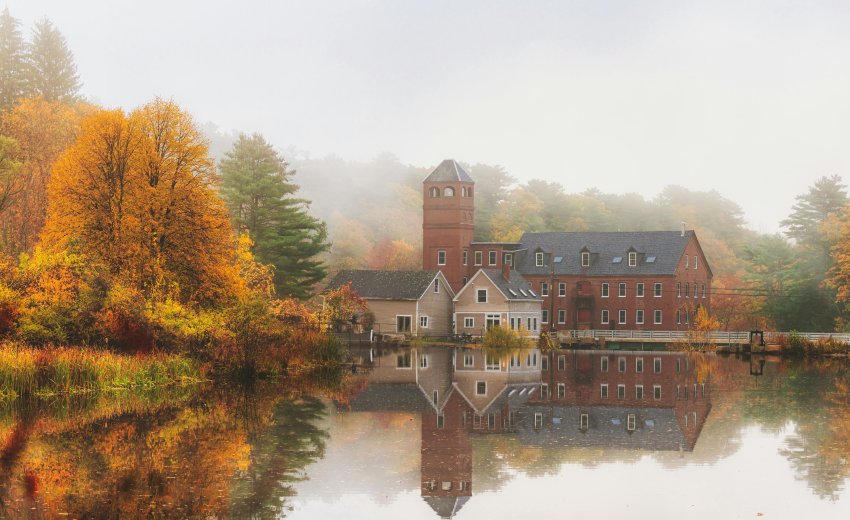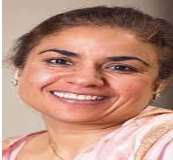There are not many people who inspire others to stay connected with the past while building modern edifices. Tarlochan Singh, the parliamentarian is one of them. With his vast experience in various aspects of public life combined with the warmth and charm of the old world, he stands tall and communicative.
Sardar Tarlochan Singh, Member of the Indian Parliament, spent last week at Colby, an elite liberal arts college in Maine, USA. Of course, Indian dignitaries and politicians- including Sardar Tarlochan Singh – frequently visit the USA. But their destination is invariably a metropolis like Washington D.C. or New York – not Waterville located in the remote state of Maine! The entire population of Waterville with its 15,000 citizens, could very well fit in one tiny area of his hometown New Delhi, commented Mr. Tarlochan Singh. Indeed, the presence of this distinguished politician and civic leader in the halls of Colby College was a historic event. The tall handsome figure, elegantly dressed in vibrant turbans, brought enormous color to Colby’s snow-covered landscape.
In spite of the chilly weather, Colby. College, the town of Waterville and the State of Maine welcomed Mr. Tarlochan Singh most warmly, which he duly acknowledged and sincerely reciprocated. In fact, when the Indian Member of Parliament visited the State Capital in Augusta, he received a standing ovation from the House of Representatives and the Senate. His daily schedule consisted of informal discourse with students and faculty over breakfast lunch and dinner. His professional experience in the different branches of the Indian Government his expertise on Minority issues and Human Rights, and his versatile interest in Tourism, Sports and Museums were valuable resources. The conversations and dialogue with MT. Tarlochan Singh provided the local community with a heightened awareness of our global reality.
Sardar Tarlochan Singh’s talk at seminars and classrooms were enlightening and with his unique dynamism he made India and the distant East come out alive for Colby students. In the Seminar on Sikhism, he spoke on Sikh identity and expressed his views on the French ban on conspicuous religious symbols in public schools. In a class on Religions of East Asia, he discussed minority issues, with a focus on Tibet. During his public lecture on Indo-US relations, he boldly advocated that students travel to different parts of the world and learn first-hand about world history. He also reminded the audience that Roosevelt pleaded with Churchill to grant India complete self-government after World War II and that the USA was the first country to exchange ambassadors with India.
For me it was much more than a distinguished lecturer coming to Colby College: “Tarlochan Uncle”, as I have known him since my childhood, has been a dear family friend. Whenever he’d visit us in my home in Patiala, my father Professor Harbans Singh would be absolutely thrilled and the two of them would have intense conversations. Being with Tarlochan Uncle, brought up that lost world of my parents. From the moment he arrived in Marine. I entered the magical world of my mother-tongue and Punjabi culture. Each time I would hear him call by my childhood name Biba, my far away past would emerge powerfully. When Tarlochan Uncle met Jun Crawford whose named Chair I hold at Colby, my lost identity poignantly connected with my present professional identity. The two distant segments of my life embraced each other.
I have been inspired in my scholarly ventures as well, for I wish to explore the role of museums in the affirmation and promotion of Sikh identity. Uncle Tarlochan Singh has been a pioneer in establishing Sikh museums including the Guru Tegh Bahadur Museums in. Anandpur, Maharaja Ranjit Singh Museum in Amritsar the Shaheed Bhagat Singh Museum in Khatkar Kalan. He has also been active in setting up the Anglo-Sikh War Museum in Ferozpur and the Indian Civilization Museum at Sanghol. With his dedication and hard work, he discovered 32 Sikh artifacts at the Victoria and Albert Museum in 1975. He is the one behind the popular craft bazaar called Delhi Haat just as he is the one behind the Golden Temple lithograph that hangs in almost every Sikh home. Teaching Religious studies for over two decades, I find that religion can be daunting however, art is a universal phenomenon that can serve as a crucial approach to the study of religion. When treasures from a religious tradition are gathered together and displayed in a museum, they provide crucial subject matter for us and for our future generations. In the artifacts we encounter human experiences, memories aspirations painted drawn woven carved crafted in a variety of patterns and mediums. And these creations can be shared by all of us. Sikh, Hindu and Christian, Brown, Black and White. I have always been interested I the philosophical and aesthetic dimensions of Sikh art and Tarlochan Uncle with his monumental work in museum has incited me to expend the boundaries of my research and teaching.
As we all know, technology in our global society today can instantly connect us with distant parts of the world and as America outsources tasks India becomes its back office. But the question remains have we made those vital emotional links that are so essential to our humanity? Tarlochan Uncle cited Dr. Martin Luther King who remarked during his visit to India in 1959 “to other countries I may go as a tourist, but to India I come as a pilgrim.” I felt that the Indian Member of Parliament himself nurtured that spiritual element. During his entire visit he was constantly positive buoyant and optimistic he is the embodiment of the Sikh principle of Chardi Kala. With his amazing personal and intellectual energy. Tarlochan Uncle created a spark which will continue to warm up the relationship between east and west India and America, Waterville and Delhi and Colby classrooms with the world at large.
Nikky Guninder Kaur Singh
Professor of Religious Studies
Colby College, Waterville,
Maine, USA

